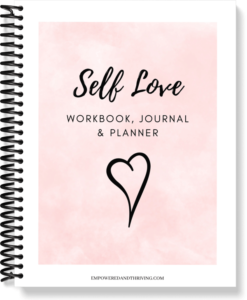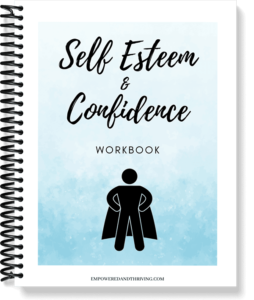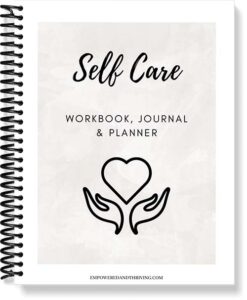People-pleasers put everyone else’s needs and wishes before their own. It’s difficult for them to say “no” because their own worth and value are tied to how much they do for others. It makes them feel important and needed, and saying “yes” is almost like a drug that feeds an addiction to feeling important. A people-pleaser also dreads letting others down and being seen in a bad light, so it’s important that they be seen as someone who will always be a yes man or woman. Their inability to stop people-pleasing, however, comes at a high cost.
You May Also Like: People Pleaser Quotes – 44 Wise Thoughts
The Downside Of Being A People-Pleaser
No Time For Yourself
When you are always doing for others you have no time to make yourself a priority. Self-care is extremely important for your mental, emotional, and physical well-being. It’s important for our families because you can’t pour from an empty cup, right? If we want to prioritize self-care, we must learn to stop people-pleasing.
People-Pleasers Feel Drained
If you do not stop people-pleasing, you will continue to feel drained. Not only physically, but mentally as well. People-pleasers get involved in other people’s issues, and that can be mentally draining. We have our own issues to worry about, and we all need time to recharge our own batteries.
People Take Advantage Of You
Being a people-pleaser opens you up to being taken advantage of because you may have difficulty standing up for yourself. You will always be the go-to person for someone wanting to benefit from your inability to say no. You may find yourself constantly babysitting, giving rides, helping with home projects, and so on.

How To Stop People-Pleasing
There are many other downsides and reasons to stop being a people-pleaser. So how do you stop? Here are some important strategies to stop people-pleasing.
1 – Give Yourself Time To Decide

People-pleasers often struggle with saying “no” and readily agree to requests without proper consideration. This often results in regret. To avoid this, try giving yourself time to think by saying “let me get back to you” instead of immediately giving in. This allows you to weigh the request and make an informed decision, rather than committing to something you don’t want to do impulsively.
2 – Set Boundaries To Stop People-Pleasing

Establish clear boundaries for things that you will no longer tolerate or compromise on. While it’s important to be considerate of others, it’s not necessary to sacrifice your own comfort, well-being, or happiness. To start, make a list of activities or situations that cause you discomfort, frustration, or stress. These are indicators of where you need to draw the line. Then, formulate clear and concise statements for each boundary, so that others understand your stance. This will eliminate the need for weak excuses or backtracking when you are upholding your boundaries.
3 – Be Assertive

Stop people-pleasing by saying no and being assertive. Saying “no” can be challenging for people-pleasers, but it is an essential skill for breaking free from the cycle of pleasing. Keep in mind that those who are accustomed to taking advantage of others may not be used to hearing “no.” So, be prepared for pushback. To be assertive in saying “no,” use the first two strategies of giving yourself time and reinforcing your boundaries. If someone persists, tell them “let me get back to you.” This gives you time to reflect on why you established your boundaries in the first place. It’s important to note that being assertive does not mean being aggressive. You can still be firm in your decision while taking a measured approach.
4 – Become Inconvenient

A great way to stop people-pleasing is to become inconvenient. If someone has taken advantage of your tendency to please others in the past, it may be necessary to create some distance from them. This can be done by becoming less accessible and making it more challenging for them to reach you. For example, try avoiding responding to their emails, texts, and calls immediately. This not only reduces the likelihood of them relying on you, but it also limits your own opportunities to people-please. This strategy can be difficult to implement, especially if you have developed a strong relationship with this person. However, it’s important to remember that your own well-being and boundaries should take priority over maintaining toxic relationships. By limiting your availability, you can assert your boundaries and begin to prioritize your own needs.
5 – Realize Other People’s Life Will Go On Without Your “Yes”

People-pleasers often believe that declining a request will lead to disastrous consequences, such as ruining someone else’s plans by not babysitting or spoiling a holiday by not attending a party. However, the reality is that the impact of saying “no” is not as significant as you may imagine. Life will continue for the other person and, in many cases, they will quickly forget that you declined. It’s important to stop viewing yourself as a savior, as you are not responsible for the happiness and well-being of others. If someone is disappointed with your decision, it’s okay, and both of your lives will go on.
6 – Reflect On Past Experiences

Reflection is an important aspect of breaking the cycle of people-pleasing. Take some time to think about your past experiences where you have put others’ needs ahead of your own. Consider the emotions and thoughts that you felt in those situations, and how that impacted your life as a whole. This self-reflection can be a powerful motivator in making changes and setting boundaries for yourself. By recognizing patterns of behavior and the negative effects they have had on your well-being, you can gain a clearer understanding of the need to prioritize your own needs.
7 – Stop People-Pleasing By Developing Self-Worth

To stop people-pleasing, develop a strong sense of self-worth. Dedicate time each day to improving internal value by practicing self-forgiveness, acknowledging your accomplishments, and avoiding comparisons to others. By doing so, you can develop a strong sense of internal value and will be less likely to find your worth through the things you do for others.
8 – Be Kind To Yourself

Remember that it’s okay not to be a people-pleaser. It’s okay if you can’t be there 100% of the time to meet someone else’s needs. Everyone has limits, and it’s important to recognize and respect your own. By taking care of yourself first, you can be more present and better equipped to help others when needed. So, don’t beat yourself up if you can’t always be the ultimate people-pleaser. You’re doing the best you can, and that’s all that matters.
Conclusion
Among many other drawbacks, if you continue being a people-pleaser, you will have limited time for yourself, you’ll continue feeling emotionally and physically drained, and people will continue taking advantage of you. Stop people-pleasing by giving yourself time to decide, setting boundaries, being assertive, becoming inconvenient, and realizing other people’s lives will continue. Also, reflect on past experiences, work on developing self-worth, and be kind to yourself.
How has people-pleasing held you back? Let us know in the comments below.









Leave A Reply